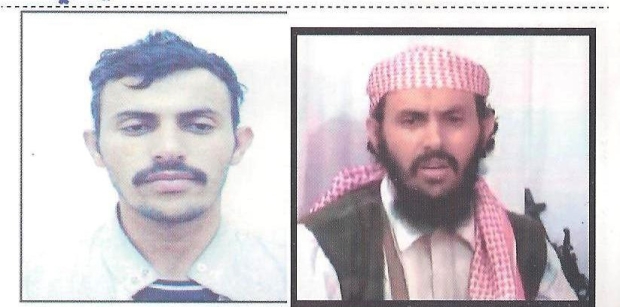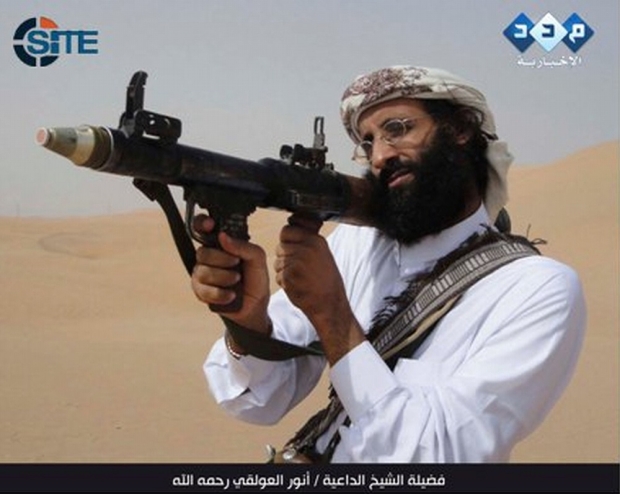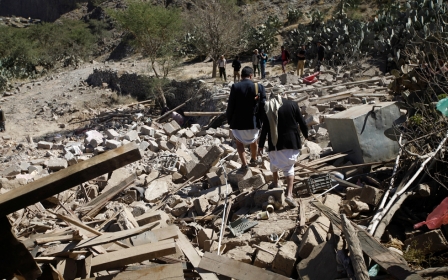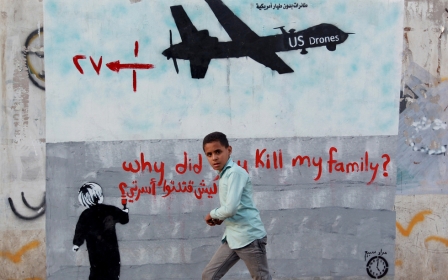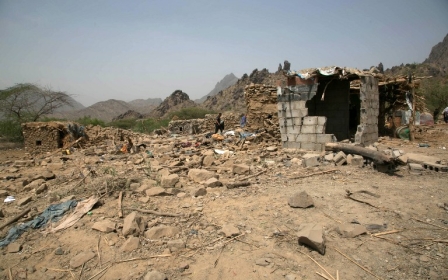'A night of evil': US attack in Yemen leaves scars, fear and hatred
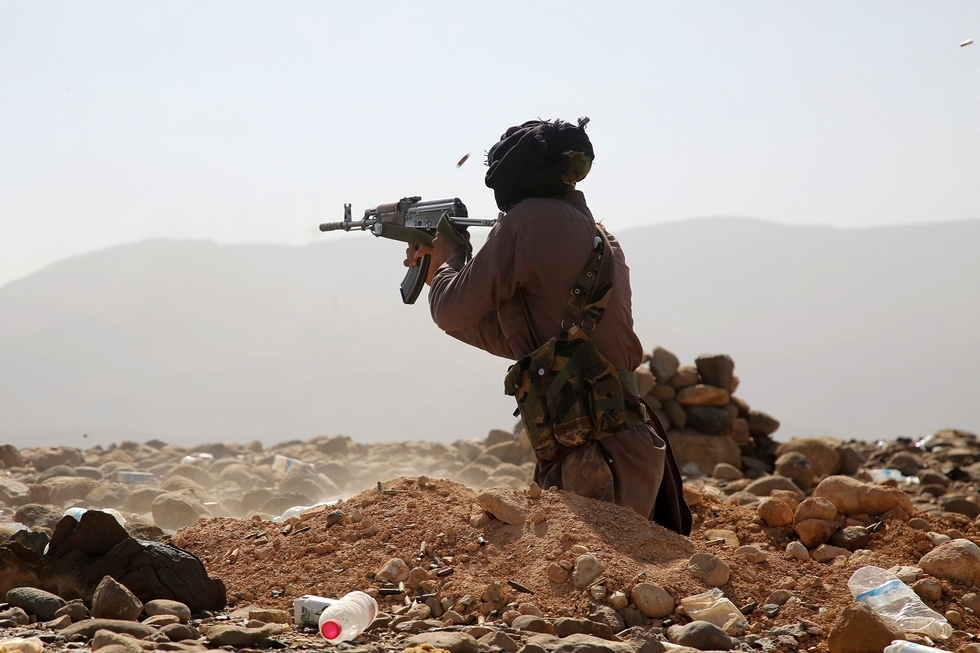
YAKLA, Yemen - With no electricity or phone coverage, many villagers in Yakla go to sleep early, and wake for dawn prayers before working on their farms.
In the early hours of Sunday, 29 January, that routine was shattered. Drones and helicopters swooped on the remote settlement, disgorging first missiles and then US commandos, in the first military action ordered by US President Donald Trump.
The US forces reportedly missed their target: al-Qaeda in the Arabian Peninsula leader Qassim al-Rimi, hiding out in what they said was a known al-Qaeda fortress.
'We woke up and waited for our destiny. That was the beginning of the evil night'
Yakla villager
But in the aftermath of the operation, which some US officials admit went disastrously wrong, many others lay dead: Up to 25 civilians, including an eight-year-old girl thought to have been a US citizen, and one US commando.
Rimi said afterwards that 14 members of his group had died in the attack - apparently confirming the village's link to AQAP - but villagers deny any association, and say what happened on Sunday was simply a massacre.
Whatever the facts, an account of the raid obtained by Middle East Eye presents a night of terror and confusion in a war already clouded by shifting front lines, loyalties and objectives.
US commando raid in Yemen 'failed to capture al-Qaeda chief'
Yakla is in Yemen’s remote and dangerous al-Bayda province, and interviews were obtained through a third party who visited last week.
"At 2.30am we heard the buzz of the drones," one villager told the intermediary on condition of anonymity, fearing he could be targeted in future action.
"That is nothing new for us - we woke up and waited for our destiny. That was the beginning of the evil night."
"After the drones, we heard helicopters overhead – that was when the tribesmen decided to take up arms and went out to face the forces."
According to the villager, tribesmen grabbed "personal' firearms" which in Yemen, one of the world's most weaponised countries, include machine guns and assault rifles, to confront the US forces.
He said US forces had deliberately targeted civilians - a charge denied by the US and that could not be independently verified by Middle East Eye.
"At 3am dozens of commandos dropped from the helicopters and started to storm civilian houses, killing those inside - including women and children."
Two of the US aircraft were destroyed in the firefight, the villager claims - although again, this cannot be verified. The US admitted that one of its aircraft, a tilt-rotor V22 Osprey, suffered engine failure during the raid and had to be destroyed.
After US forces stormed the houses in Yakla, drone strikes destroyed three building and damaged others, the resident said.
"We all thought we would die that night," the villager said. "I'm so lucky that no one in my family was killed – but it’s so sad to see my neighbours killed without sin."
Residents told MEE they had been left wondering when, not if, another raid would hit the village. "Now the residents of Yakla are just waiting for the next raid to kill the rest of the civilians," the villager added.
"You can’t imagine the forces that were dropped from the helicopters, and you can’t imagine the destruction to the village. International organisations must investigate this crime against humanity."
The village was described by the third party as a plantation mainly growing qat, a mild stimulant grown and used across Yemen.
US sources say intelligence showed the village was defended by prepared emplacements and machinegun nests, and ringed by minefields - one of the many factors in a decision by the former US president, Barack Obama, to leave the operation on the shelf.
What is certain is Yakla has been used by fighting men at a time of civil war - many tribesmen are members of the Popular Resistance, a loose coalition of groups fighting against the Houthi rebel movement which took over large areas of the country and kicked out the country's president, Abd Rabbuh Hadi, in 2015.
An official for the local Radaa district, Nasser al-Sanne, said three of these prominent tribal figures were killed in the attack: Saif al-Jawfi, and Abdulraouf and Sultan al-Thahab, who the US say were members of al-Qaeda. Residents and authorities said they were tribal sheikhs and had nothing to do with the group.
Sanne listed several children he said were killed: Ahmed Abulellah al-Thahab, 11; Nasser Abdullah al-Thahab, 13; Mirsal Abdu Rabo al-Ameri, six; Asma Fahd al-Ameri, a three-month-old baby; Abdullah Ahmed al-Zoobah, 16; and Nawar Anwar al-Awlaqi, six.
He said he believed this was evidence the raid targeted several families, not just the Thahabs.
'I am a sheikh as any another Yemeni sheikh, and all accusations that say I am a member of al-Qaeda or field commander are lies'
Abdulraouf Thahab
The Thahabs had two other brothers who were indeed linked to al-Qaeda and were killed in drone attacks in recent years.
Abdulraouf however was fighting for the Popular Resistance to liberate al-Bayda province from the Houthi rebels, according to other members.
Abdulraouf had, four years ago, also denied the US accusations against him, saying in a video: "I am a sheikh as any another Yemeni sheikh, and all accusations that say I am a member of al-Qaeda or field commander are lies."
Sanne said: "All of Radaa knows Abdulraouf and we did not hear of him taking part in any operation with al-Qaeda. He was the brother-in-law of the US citizen, Anwar al-Awlaqi, who was an al-Qaeda preacher."
Anwar al-Awlaki was killed in a US drone strike in Yemen in 2011.
Thahab had recently worked with pro-government forces in Marib province - a source said he had been supplied with weapons to liberate his home province from the Houthis.
"Thahab was a main ally of the pro-government forces in al-Bayda and it is not in the interest of the government for him to be killed - as he is one of the bravest fighters in al-Bayda," the source said.
For the people of Yakla, talk of who was and wasn't on the American hit list were secondary to what they believe were the true objectives: making Trump look strong.
One villager said: "The new US president thinks himself to be the strongest in this world, but I say our prayers to Allah are stronger than him, and Allah will help the weak people like us."
Middle East Eye propose une couverture et une analyse indépendantes et incomparables du Moyen-Orient, de l’Afrique du Nord et d’autres régions du monde. Pour en savoir plus sur la reprise de ce contenu et les frais qui s’appliquent, veuillez remplir ce formulaire [en anglais]. Pour en savoir plus sur MEE, cliquez ici [en anglais].


